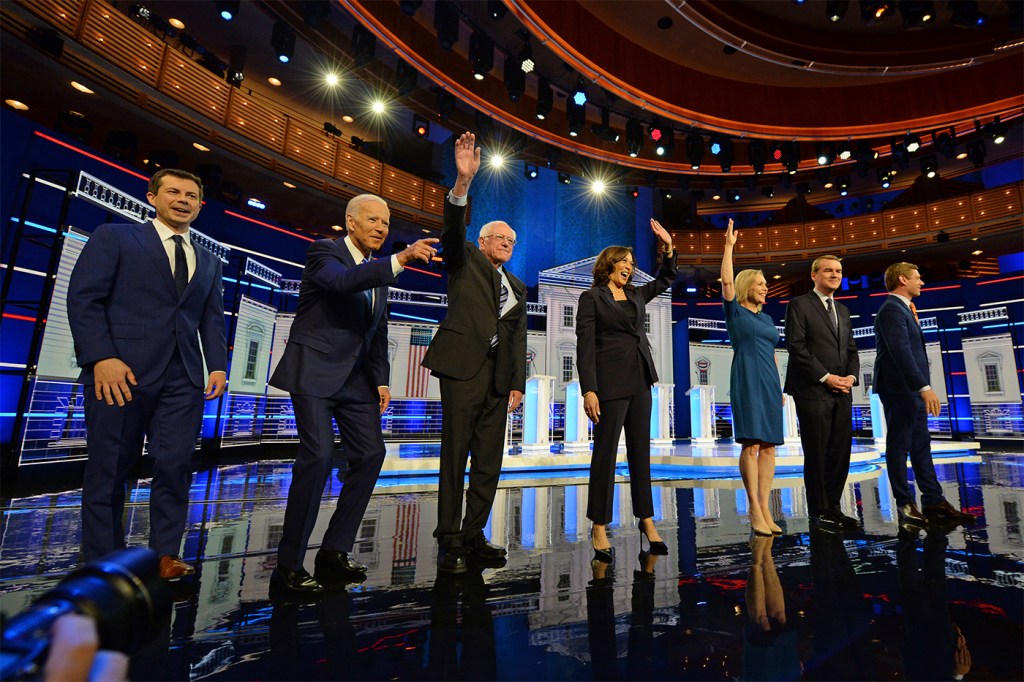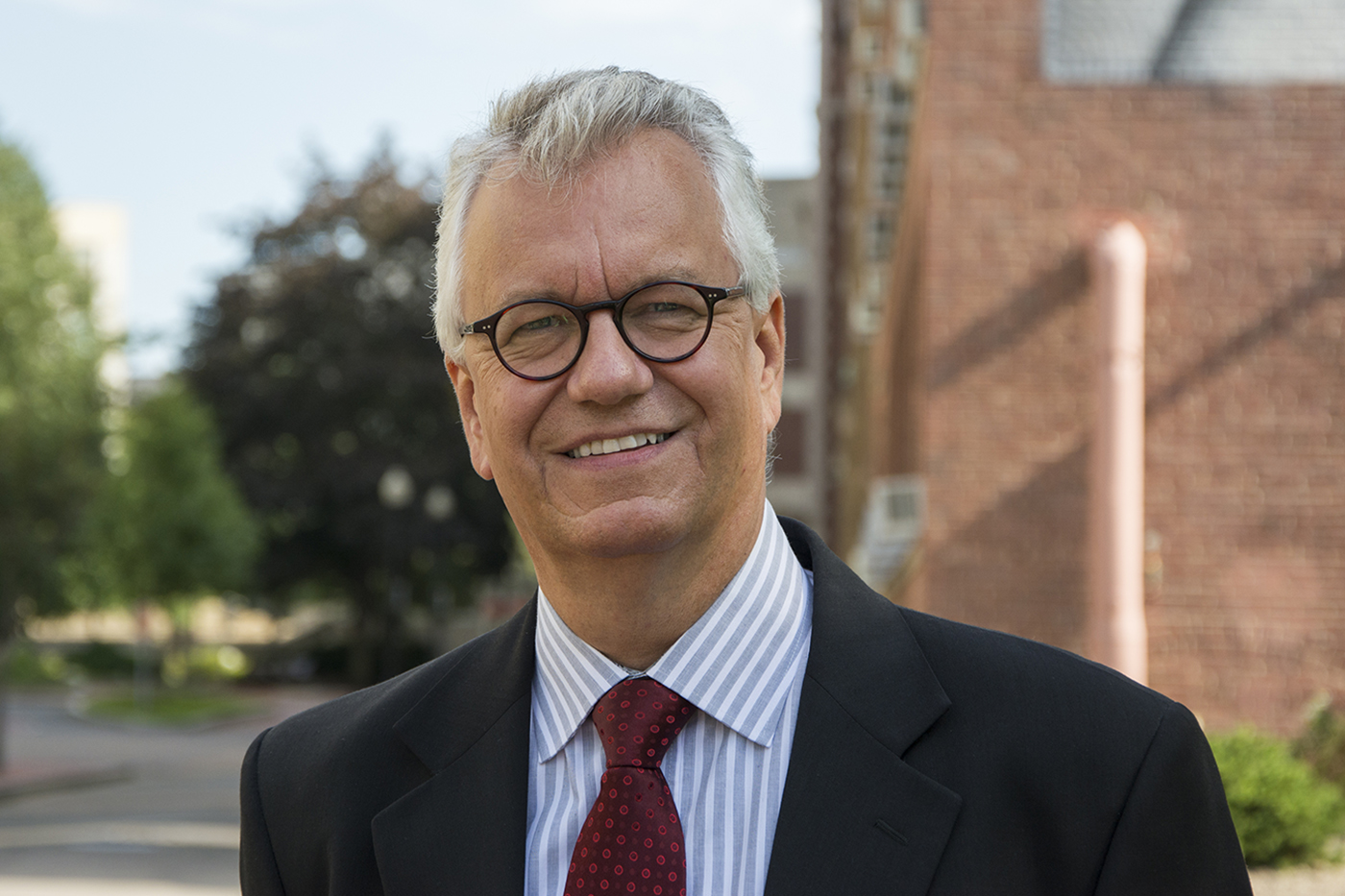Here’s why the second round of Democratic debates will be ‘an elimination round’

The 20 Democratic candidates for U.S. president will meet again this week for a second round of televised debates that will likely end up being “an elimination round,” says Alan Schroeder, a professor emeritus of journalism at Northeastern who studies presidential debates.
To qualify for this week’s debates, which will be held on July 30 and 31 in Detroit, Michigan, candidates needed to earn at least 1 percent support in three polls, receive donations from 65,000 people, or both. For the following round of debates in September, the criteria double.

Photo courtesy of Alan Schroeder
“The way the polling and fundraising stands now, there’s only a handful of people who will make that September cut,” Schroeder says. “For the candidates polling at 1 percent and below, this is their last chance to have a breakthrough.”
More than half of the candidates are in that danger zone. Schroeder’s advice? “Go back and study Julián Castro’s performance from the first debate.”
Schroeder says the former secretary of the U.S. Department of Housing and Urban Development did a good job of cutting through the noise of 19 other candidates by focusing on a specific issue—in Castro’s case, immigration—and putting a particular proposal on the table.
“Julián Castro maximized his opportunity, and that’s not easy to do with so many other people on the stage,” Schroeder says. Castro’s poll numbers have been hovering around 1 percent.
Another way to stand out is to “attack someone else,” Schroeder says.
In the first round of debates, U.S. Rep. Eric Swalwell of California made headlines when he told former Vice President Joseph Biden, who has so far been the frontrunner, that it was “time to pass the torch.” But Swalwell, who was polling at 1 percent at the time, has since dropped out of the race—highlighting the mercurial nature of debates in general.
“There’s no sure-fire recipe for success here,” Schroeder says. “If there were, everyone would be following it.”
Swalwell was on to something, though. As the frontrunner, Biden “has a target on his back,” Schroeder says. Watch for U.S. Senators Corey Booker and Kamala Harris to take Biden to task for his record on civil rights issues as they have in the past, Schroeder says.
Televised presidential debates tend to be “reactive to whatever happens to be in the news at the moment,” Schroeder says, and this one comes on the heels of the publication of a string of disparaging tweets from the president about Baltimore, Maryland and the congressman who represents it.
“I would expect the candidates to address that, and to get some questions about it,” Schroeder says.
He also expects climate change to come up, particularly because it’s an issue that motivates younger voters, who make up a key demographic for the eventual nominee.
But the real issue at the heart of these debates is still, Schroeder says, “How do you deal with such a large field?”
“If there were going to be any surprises, we probably would have seen them in the first round of debates,” he says. “But then again, this is live TV, so you just never know.”
For media inquiries, please contact media@northeastern.edu.





